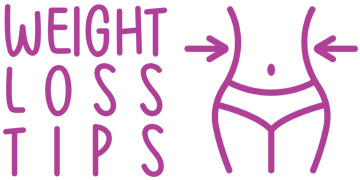After you eat, glucose enters the bloodstream, and then the pancreas produces insulin to allow the glucose to reach the body’s cells. That’s how your body is provided with energy. Therefore, as a hormone, insulin is connected to your blood sugar levels and metabolism.
So, does insulin decrease appetite? Continue reading and discover all the helpful information about insulin and whether it’s effective in losing weight.

Does Insulin Decrease Appetite?
No, it’s less likely for insulin to decrease appetite. A study published by the National Library of Medicine shows that elevations in insulin produce increased hunger and increased food intake.
Continue to read and learn more about it.
Insulin and its effects on appetite and weight
When it’s subcutaneously injected into the blood, the insulin breaks down 60% in the kidneys and 40% in the liver. A PubMed study explains that when insulin reaches your brain, it stimulates the appetite center. Furthermore, this might lead to potential weight gain.
However, the same study suggests that once insulin reaches the liver, it may also develop gluconeogenesis. This refers to a process when lactate and amino acids are transformed into glucose. Gluconeogenesis may lead to weight loss.
Equally important, not everybody responds well to insulin. This means your body, cells, and muscles may not react properly to it. Thus, when the body faces insulin resistance, it may develop high blood glucose and lead to weight gain.
Nevertheless, a study from 2022 shows that intranasal insulin may decrease appetite in humans. IN insulin represents a method of administering insulin with a spray device through the patient’s nasal cavity. This method is used to increase brain insulin levels.
The same study suggests that intranasal insulin may decrease food intake. However, obese women tend to be more sensitive to this effect in comparison to lean women.
Can you take insulin and still lose weight?
As you can see, insulin is mostly related to increased appetite. That often may lead to weight gain. However, there are certain ways to minimize insulin therapy and prevent gaining weight.
Firstly, counting calories is recommended. When you pay attention to how much you eat, you may control your weight better; thus, make a plan for every meal. Also, don’t forget to balance the food.
Secondly, you mustn’t skip meals. This is a common mistake that many people make. A study shows that skipping meals may result in weight gain. So, count your calories and eat regularly.
Next, you must be active. A study explains that exercise should be an integral part of any weight loss program. Therefore, pick a workout program that suits you best. Also, try to exercise for at least 30 minutes a day.
Lastly, take insulin as prescribed. Meaning you mustn’t reduce the dosage. What’s more, you mustn’t skip it either. I say this because, with a lack of insulin, your blood sugar level may rise. As a result, you might face more diabetes complications.
How to control your appetite when taking insulin therapy?
You must establish good diabetes control. This means if you feel hungry, first you must check your blood sugar. If it’s low, eat around 15 grams of carbohydrates. On the contrary, if it’s high, go for a walk or drink herbal tea or water.
Also read: How Long Does It Take to Get Used to Eating Less
Conclusion
Does insulin decrease appetite? Now you know the answer. Often insulin and increased appetite go hand in hand. However, there are certain ways to control your appetite and weight while taking insulin therapy.
Simply focus on being healthy, don’t skip the therapy, and try to be more active. Also, you must eat regularly, and the food must be balanced.
Disclaimer: The mentioned effects of intranasal insulin in this article are not a guarantee for weight loss. If you have diabetes and want to lose weight, you must consult with your doctor first.

